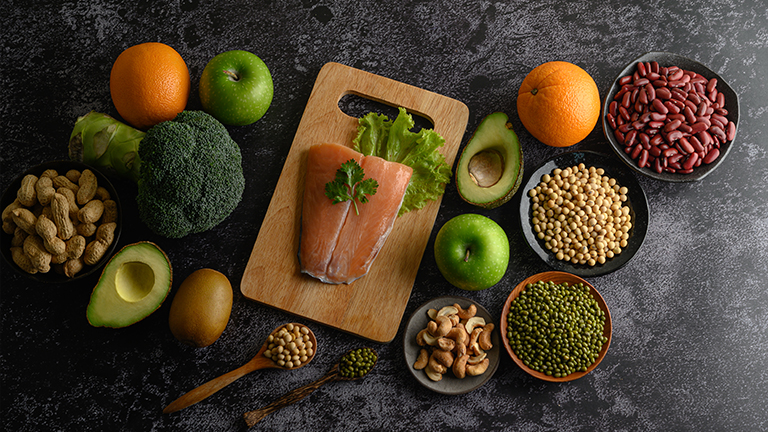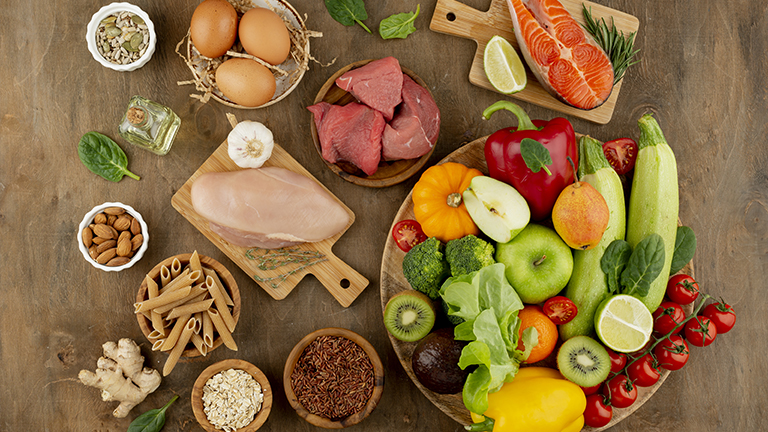Eating the right foods every day is one of the most powerful steps you can take to protect your health, boost your energy, and support long-term well-being. The modern diet is often filled with processed, nutrient-poor options that contribute to weight gain, chronic diseases, and fatigue. Instead, focusing on the 10 most healthy foods—packed with vitamins, minerals, fiber, and antioxidants—can help you maintain a strong immune system, a healthy heart, and an energized mind.
In this guide, we’ll cover the healthiest foods in the world that you should eat daily, how they support your body, and easy ways to include them in your meals.
1. Leafy Greens (Spinach, Kale, etc.)
Leafy greens like spinach, kale, Swiss chard, and collard greens are some of the most nutrient-dense foods on earth. They are loaded with vitamins A, C, K, folate, iron, and calcium while being very low in calories.
Health Benefits:
- Boost immunity and fight inflammation.
- Support bone and eye health.
- Promote gut health due to high fiber.
Tips to Include: Add them to salads, smoothies, stir-fries, or soups. A handful of greens daily can significantly improve nutrient intake.
2. Berries (Blueberries, Strawberries, etc.)
Berries are considered top superfoods for health due to their rich content of antioxidants like anthocyanins, vitamin C, and fiber.
Health Benefits:
- Protect cells from oxidative stress.
- Improve brain function and memory (great for brain-healthy foods).
- Support heart health and reduce inflammation.
Tips to Include: Enjoy a bowl of mixed berries as a snack, blend them into smoothies, or sprinkle them over yogurt and oatmeal.
3. Fatty Fish (Salmon, Sardines, Mackerel)
Fatty fish are packed with omega-3 fatty acids, protein, vitamin D, and selenium—making them some of the best foods for heart health and longevity.
Health Benefits:
- Reduce risk of heart disease.
- Support brain function and mental health.
- Promote healthy skin and reduce inflammation.
Tips to Include: Aim for two servings per week. Grill salmon, add sardines to salads, or try mackerel in Mediterranean-style dishes.
4. Nuts & Seeds (Almonds, Walnuts, Chia, Flaxseeds)
Nuts and seeds are compact powerhouses of healthy fats, protein, and fiber.
Health Benefits:
- Walnuts support brain health.
- Almonds provide vitamin E for skin and heart health.
- Chia and flaxseeds are rich in omega-3s and fiber, aiding digestion and lowering cholesterol.
Tips to Include: Use them as snacks, sprinkle over salads, or blend into smoothies for a protein-rich boost.
5. Whole Grains (Oats, Quinoa, Brown Rice)
Unlike refined grains, whole grains retain their bran and germ, making them excellent foods for gut health and weight management.
Health Benefits:
- High in fiber, keeping you full longer.
- Improve digestion and stabilize blood sugar.
- Lower risk of heart disease and type 2 diabetes.
Tips to Include: Have oatmeal for breakfast, replace white rice with quinoa or brown rice, or use whole-grain bread and pasta.
6. Legumes (Beans, Lentils, Chickpeas)
Legumes are protein-rich, budget-friendly, and a staple in many healthy diets.
Health Benefits:
- Provide plant-based protein for muscle health.
- Support gut health with fiber.
- Help manage blood sugar and cholesterol.
Tips to Include: Make lentil soup, add chickpeas to salads, or prepare black bean tacos for a high-protein healthy food option.
7. Olive Oil & Healthy Fats
Extra virgin olive oil is a cornerstone of the Mediterranean diet and one of the best foods for a balanced diet.
Health Benefits:
- Rich in monounsaturated fats that protect the heart.
- Anti-inflammatory properties reduce chronic disease risk.
- Supports brain health and longevity.
Tips to Include: Use olive oil in cooking, as a salad dressing, or drizzle over roasted vegetables.
8. Cruciferous Vegetables (Broccoli, Cauliflower, Brussels Sprouts)
Cruciferous veggies are packed with antioxidant-rich compounds and detoxifying nutrients.
Health Benefits:
- Protect against certain cancers.
- Improve digestion and gut health.
- Support liver detoxification.
Tips to Include: Roast broccoli with olive oil, steam cauliflower, or sauté Brussels sprouts with garlic.
9. Yogurt & Fermented Foods
Foods like Greek yogurt, kefir, sauerkraut, and kimchi are excellent sources of probiotics.
Health Benefits:
- Boost gut microbiome and improve digestion.
- Strengthen the immune system.
- Provide calcium and protein for bone health.
Tips to Include: Have yogurt with fruit, add kimchi to rice bowls, or drink kefir smoothies.
10. Dark Chocolate (in moderation)
When consumed in moderation, dark chocolate (70% or higher cocoa) is a surprisingly healthy treat.
Health Benefits:
- Rich in antioxidants that fight free radicals.
- Improves blood flow and heart health.
- Enhances mood and brain function.
Tips to Include: Enjoy a small piece after meals or add cocoa powder to smoothies for a guilt-free treat.
Bonus: Water & Herbal Teas for Overall Health
Hydration is essential for every aspect of health. Water helps flush toxins, regulate body temperature, and support digestion. Herbal teas like green tea, chamomile, and ginger provide additional antioxidant and anti-inflammatory benefits.
Tips for Including These Foods in Your Daily Diet
- Plan balanced meals combining proteins, healthy fats, and complex carbs.
- Meal prep ahead of time to make healthy eating convenient.
- Snack smart with nuts, berries, or yogurt instead of processed foods.
- Experiment with recipes to keep meals exciting and sustainable.
Conclusion: Building a Healthy Eating Lifestyle
Eating the 10 most healthy foods daily doesn’t mean following a strict diet—it’s about making better choices that nourish your body and mind. From leafy greens and berries to fatty fish and fermented foods, each option supports long-term wellness, disease prevention, and vitality. By incorporating these nutrient-dense foods into your diet, you’re investing in a healthier, longer, and more energetic life.


